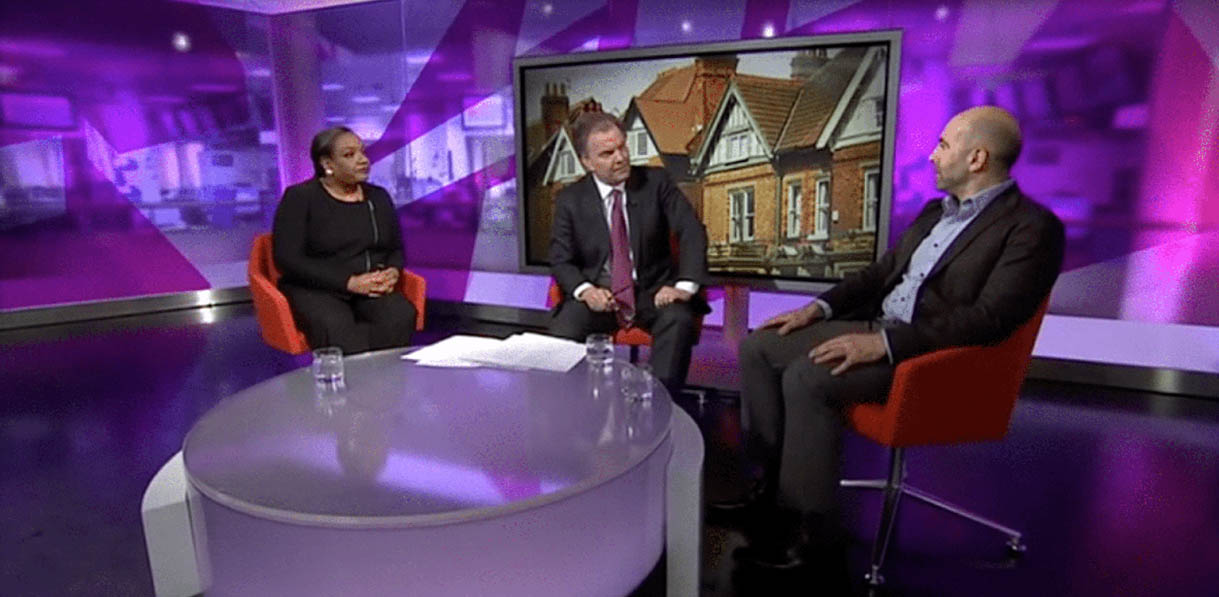 Many in the landlord community viewed Ed Milliband’s proposals for the private rented sector with derision and after a short post election honeymoon period we have been digesting surprise tax changes from George Osborne’s Summer budget. Next the election of Jeremy Corbyn as Labour Party leader, described by party heavyweight Lord Faulkner as “a political earthquake.” In the run up to the May 2015 election National Landlords Association colleagues and I jousted through a string of media interviews rebutting proposals for increased regulation. I remember on more than one occasion Corbyn would make his usual call from the sidelines for rent control and in my thoughts I’d dismiss his interjection as the voice of somebody who would never hold power. Now he is leader of Her Majesty’s opposition.
Many in the landlord community viewed Ed Milliband’s proposals for the private rented sector with derision and after a short post election honeymoon period we have been digesting surprise tax changes from George Osborne’s Summer budget. Next the election of Jeremy Corbyn as Labour Party leader, described by party heavyweight Lord Faulkner as “a political earthquake.” In the run up to the May 2015 election National Landlords Association colleagues and I jousted through a string of media interviews rebutting proposals for increased regulation. I remember on more than one occasion Corbyn would make his usual call from the sidelines for rent control and in my thoughts I’d dismiss his interjection as the voice of somebody who would never hold power. Now he is leader of Her Majesty’s opposition.
As Corbyn formed his new shadow cabinet, we witnessed a cobbling together of those few hardline leftwingers in the parliamentary Labour Party and otherwise people whom he could persuade to work with him. There remains much confusion about how much of Corbyn’s ideas will become official Labour Party policy that the front bench must adhere to. The new leader is a maverick, conviction politician with a solid record of not sticking to the party line. Many believe his survival until the 2020 general election is in doubt due to poor devolved and local election results and a lack of leadership skills. Indeed in the first YouGov poll after he was elected as leader, only 17% of the public said they could see him becoming Prime Minister. Even if Corbyn doesn’t make it to power, given the surge of enthusiasm for him in the Labour movement, to what extent might his ideas and prominence change attitudes to the private rented sector and housing? Let’s take a look at Corbyn’s housing policy document, issued in August 2015.
Corbyn berates the reduction of home ownership and the centrepiece of the document is to build more council housing at the rate of 240,000 per year. He proposes allowing local authorities to borrow more and establishing a National Investment Bank. Public land should be made exclusively available to councils for building and not private developers and he proposes a land value tax on undeveloped land with planning permission. He opposes the recently created extension of permitted development rights to increase the size of extensions, develop upwards to the height of neghbouring properties and converting commercial units into residential use. Corbyn seems to overlook the past forty years of change in house building and management and has an unquestioning, somewhat nostalgic faith in the public sector’s ability to procure, develop and manage the need for more housing.
At his first question time, Corbyn chose to put questions from the public to the Prime Minister and his first from Marie was: “what does the government intend to do about the chronic lack of affordable housing and the extortionate rents charged by some private sector landlords in this country?” In his policy, he says he wants to end “the free market, free-for-all in housing,” saying “only the government is able to play the strategic co-ordinating role to tackle the housing crisis.” Marie’s question shows little understanding of how the private rented sector works. It implies that landlords pluck a rental figure out of the air and are not subject to the market forces of supply and demand. It also ignores the role of commission-driven letting agents in negotiating rents and encouraging annual rises.
Corbyn proposes a national register and local licensing of landlords, longer tenancies and the application of the Decent Homes Standard to the private rented sector. He would ban ownership of property by non UK based entities. He wants to end subsidies to landlords, by which he probably means allowing them to set business expenses against profits before tax. Landlords would buy fewer properties, he says, bringing down house prices and making property more affordable for people struggling to save for a deposit. He does not say what would happen to the thousands of current homeowners who would then have to cope with negative equity. Commenting on his proposals for Quantative Easing to fund public projects, The Governor of the Bank of England has also warned that subsequent inflationary pressures would push up prices for the low income families he wishes to help.
Corbyn has broken ranks with the left-right political consensus by declaring the Labour party is opposed to the welfare cap as well as the bedroom tax. “They penalise the tenant for the failure of government to build sufficient housing. There is a strong case for capping (benefit) costs – but it is rents that should be capped. By capping rent costs we will also be saving on housing benefit costs.” Such caps will mean an end to buy to let finance, rent will cease to cover costs and landlords will fail to invest in the upkeep of properties or sell up. High rents reflect the high price of the asset and the unprecedented demand for housing, especially in London, which is not the fault of landlords. Should landlords be punished for developing businesses to meet demand? Successive governments have failed to build enough housing and encouraged private landlords to fill the gap through deregulation. Falling pension returns have also driven investors to seek alternatives, such as property.
If you believe that Corbyn will never be elected, these arguments are academic. But are there wider forces at play? Many consider the election of Corbyn as a mirror of Podemos in Spain and Siritza in Greece. A popular uprising by Generation Y against the excesses of their older Generation X, fuelled by a belief that profiting from housing – a basic need – is vulgar and the time for buy to let is over. Rents in the UK were regulated from 1914 to 1989 and have now been unregulated for just 26 years. Whilst only 17% of people in that YouGov poll thought Corbyn would become Prime Minister, 70% said they thought rent control was a positive idea. Will other political parties feel pressured to respond to Corbyn’s policy? Sadiq Khan, Labour’s mayoral candidate wants to seek powers from government to set rent caps in London. Building enough houses appears to be utterly intractable for government and a harsh approach towards landlords is never unpopular amongst the general public, fed by a constant drip drip of media horror stories. George Osborne’s tax changes are a means of gently applying the brakes on buy to let in Britain, but is this the beginning of something much more intrusive?
For those of us with a vibrant property business, refurbishing old houses and providing and managing good quality homes for tenants, is there anything we should be doing to future proof our businesses? For me the number one rule is to add value – spend money repairing the property to reduce your tax liability and stay out of higher tax rates for as long as you can. You will also be storing equity which would shield you from any price falls or can be used for further investment. Some advocate purchasing through limited companies, but restructuring around tax changes is a thankless task as policy could change again with little or no notice. Secondly you need to set a minimum gross rental yield so that you have a clear margin above mortgage costs. If rent control rears its ugly head you would still be able to cover your costs and wouldn’t be forced into a quick sale. If longer tenancies are forced upon the private rented sector, thorough tenant referencing and rent guarantee insurance will become increasing important. If you have undeveloped land, then risk assess scenarios where a land tax could force many developers to build at once, depressing house prices.








